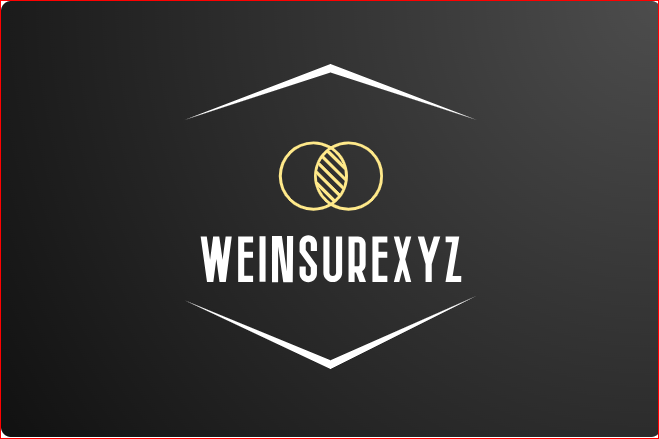Understanding Small Business Liability Insurance
What is Liability Insurance?
Are you a small business owner looking to protect your venture from potential legal liabilities? Investing in small business liability insurance is a crucial step toward safeguarding your business against unforeseen risks. However, navigating the world of insurance can be daunting, especially if you’re unfamiliar with the process. That’s why we’ve compiled a comprehensive guide to help you make informed decisions when purchasing small business liability insurance. Let’s dive in!
Many small businesses operate without liability insurance to cut down on operating costs, but in today’s business climate in which frivolous lawsuits are brought against companies daily, operating without any liability coverage is a highly volatile practice. Often, the cost of defending a claim without insurance can push a small business into extreme debt or bankruptcy.
Before we delve into the buying process, let’s clarify what liability insurance entails. Liability insurance provides financial protection in the event your business is sued for injury or property damage caused to others. It covers legal fees, medical expenses, and damages awarded by the court, offering invaluable peace of mind to small business owners.
Types of Liability Insurance
There are several types of liability insurance tailored to different business needs. General liability insurance protects against bodily injury and property damage claims, while professional liability insurance (also known as errors and omissions insurance) covers claims of professional negligence. Additionally, product liability insurance shields businesses from liability arising from defective products.
Tips for Buying Small Business Liability Insurance
Now that we’ve covered the basics, let’s explore some essential tips to consider when purchasing liability insurance for your small business. Small business liability insurance can end up saving a company from a financial disaster in the long term and there are ways business owners can reduce their rates. Aside from implementing a sound quality control or risk management program, there are several proactive steps companies can take to keep small business insurance coverage costs at bay, including:
1. Assess Your Risks
Before selecting a policy, conduct a thorough risk assessment to identify potential liabilities specific to your business. Consider factors such as the nature of your operations, the number of employees, and your industry’s regulatory requirements. Understanding your risks will help you tailor your coverage to address potential threats effectively.
2. Evaluate Coverage Options
Once you’ve identified your risks, explore different coverage options to determine the most suitable policy for your business. Assess the coverage limits, exclusions, and deductibles offered by various insurers to ensure they align with your risk management strategy. Don’t hesitate to ask insurers for customized quotes tailored to your business’s unique needs.
3. Choose a Reputable Insurer
Selecting the right insurance provider is paramount to obtaining reliable coverage and exceptional customer service. Research insurers’ financial stability, customer reviews, and claims handling processes to gauge their credibility and reliability. Opt for insurers with a strong track record of supporting small businesses and providing prompt claims resolution.
4. Review Policy Terms Carefully
Before signing on the dotted line, thoroughly review the terms and conditions of your insurance policy. Pay close attention to coverage limitations, exclusions, and any additional endorsements or riders included in the policy. Ensure you understand the scope of coverage and any obligations or responsibilities outlined in the policy documents.
5. Consider Bundling Policies
Many insurers offer discounts for bundling multiple insurance policies, such as liability, property, and business interruption coverage. Consider bundling your insurance policies with a single provider to potentially lower your premiums while simplifying your coverage management. However, ensure the bundled policies adequately address your business’s diverse needs.
6. Seek Professional Guidance Enlist a specialist broker
Navigating the complexities of insurance can be overwhelming, especially for small business owners with limited experience in the field. Consider consulting with an insurance broker or agent specializing in small business insurance. They can offer expert guidance, assess your insurance needs, and help you find the most cost-effective and comprehensive coverage options. If the small business operates in a niche, it will often require specialized insurance to safeguard against unique risks. Insurance brokers will know what coverages are necessary for the business and know where to go for the best rates.
7. Shop around
Business liability insurance coverage ranges by company; read up on what is covered and what is not. Review policy plans from several insurers and compare rates.
8. Consider a Business Owner’s Policy (BOP)
Rather than purchasing separate types of insurance from various companies, consider purchasing a package of policies. When receiving an insurance quote on a BOP, be sure to understand what is included in the coverage. BOPs don’t typically include all types of insurance. For instance, Professional Liability insurance, also known as Errors and Omissions insurance, which protects organizations against claims of professional negligence and errors or omissions in professional work, is usually not included in a BOP.
9. Research industry settlements
To better understand what small business insurance coverage might be needed, look at the other businesses within the same industry. Research recent legal actions and settlements from businesses that are operating in the same field. Talk to peers about their level of coverage. Using this information, small business owners can determine average legal and settlement costs to better gauge the amount of coverage necessary for their business.
Conclusion: Protecting Your Business with Confidence
Investing in small business liability insurance is a proactive step toward protecting your enterprise from potential legal and financial liabilities. By assessing your risks, evaluating coverage options, and partnering with a reputable insurer, you can secure comprehensive protection tailored to your business’s unique needs. Remember, insurance is not just a financial investment – it’s a critical safeguard that empowers you to navigate the uncertainties of entrepreneurship with confidence.
Call to Action
Ready to protect your small business with reliable liability insurance? Contact us today to explore customized coverage options tailored to your business’s specific needs and budget. Our team of insurance experts is here to guide you through the buying process and ensure your business is adequately protected against potential risks.
While the cost of safeguarding a business and its owner with liability insurance can be costly, a little due diligence can help in finding the best coverage for the best rate. Small business liability insurance will not only protect a business and its owner from costly litigations, but it will also provide a solid foundation for success. Business owners should invest time in researching insurance coverages and investigate their own liability insurance needs. This can be done by simply talking with peers, industry associations, or insurance representatives. Having adequate insurance coverage can be one of the most important steps a business owner takes in ensuring the company’s survival.
WeInsureXYZ provides instant access to a complete package to provide you with accurate insurance information and access to quality insurance products, quickly and securely. Let us help you create a comprehensive insurance solution that fits your needs and your budget.
Don’t wait! Get the protection you need for your small business today.


